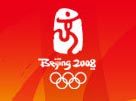NBN tender turns into bloodsport

With the Olympics over, reports say that many residents of Beijing are wandering around the city, suffering something akin to loss as they realise the hundreds of thousands of tourists are gone.

I reckon hundreds of thousands of Australians aren't feeling much better, finally over their hangovers and facing months of actual work until the silly season kicks in.
To those looking for amusement in the meantime, might I suggest they turn their attention to the national broadband network (NBN) bid, which stepped into full swing last week as the deadline for submitting network maps passed.
With any luck, Senator Stephen Conroy will soon raise the starting gun to signal that NBN contenders have just 12 weeks to submit the bids that will determine the future of Australia's broadband. During this time, technical staff at all leading carriers will have their heads down, trying to figure out the bid that will call Telstra's bluff.
Of course, this has become harder because your friendly incumbent has been feeding so much misinformation to the market that nobody really knows how much the company actually believes the NBN will really cost.
This ambiguity, in turn, leaves competitors to work out their own costings for the network, which I am led to believe is actually expected to cost around $10 billion to $12 billion, or around half what Telstra is telling everybody it believes the network will cost.
If watching technical engineers wrestle with AutoCAD doesn't sound like your idea of a replacement for the women's hurdles, perhaps you should give David Quilty a try. As the incoming head of rhetoric to replace departed human megaphone Phil Burgess, I had hopes that Quilty would attach to the job a more measured, productive tone. After all there is $4.7 billion on the line, right?
Telstra's Phil Burgess
(Credit: Telstra)
Fat chance. Quilty was quick to weigh in on Terria's recent advertising market debut: a viral marketing campaign in which it has taken out a billboard advertisement at Canberra Airport, then waited for media outlets to reprint the billboard from one side of the country to the other in the inevitable onslaught of coverage.
Quilty's appraisal was tart enough to prove that although Dr Phil may be physically leaving Australia, he will still very much be here in spirit. "Telstra invests in networks like Next G and Next IP while Terria [described as an $8 shelf company] invests in airport billboards," Quilty responded in a fashion that can only be described as smart-arsed.
Actually, Telstra buys plenty of billboards itself, as part of a nine-figure marketing budget. The criticism comes from the telco that also recently won the mantle of being Canberra's most intensive tech lobbyist. So, attacking Terria for taking out a billboard hardly seems fair.
But fair is not what this tender is about; it's bloodsport, and a fight for survival, and a challenge of the wills, and all the other sorts of superlatives you might expect from an Olympics announcer. The past months have seen personal attacks, union fights with unions that are hardly likely to speed NBN construction, and a steady stream of sarcasm from Telstra's competitors and anti-Telstra lobbying organisations.
All seem determined to come up with the smartest retort, the wittiest sound byte, the insult to end all insults. David Foreman, executive director of anti-Telstra lobbyist group the Competitive Carriers' Coalition, likened Telstra's "aggressive conduct" to "trench warfare" in an address to the recent Australian Telecommunications Summit 2008.
Forecasting a pending "crisis" in telecommunications competition, Foreman made the predictable calls for operational separation, calling on the government to stop Telstra's "gaming" and take a harder line in the lead-up to the NBN.
Whether or not this happens over the next 12-and-so weeks is anybody's guess, but it is certain to be interesting. For now, this war of words is becoming background noise to the real business at hand.
For now, I say we settle the tender by putting Sol Trujillo, Paul O'Sullivan, and Michael Egan in a room together, then make them read telecommunications legislation to each other until one or the other cries uncle from sheer mental agony.